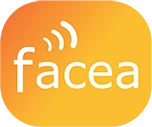Major IoT Giants and Security Camera Makers
Leave a message
The Internet of Things (IoT) has revolutionized the way we live and work. The proliferation of IoT devices has resulted in an explosion of data that has transformed the way businesses operate. Among the many different types of IoT devices, security cameras are one of the most popular, with the global market for these devices expected to reach $10.85 billion by 2025, according to a report by Grand View Research.

In this essay, we will examine the landscape of IoT giants in association with security camera makers and discuss the implications for security and privacy.
One of the major players in the IoT space is Amazon. Its line of smart home devices, including the popular Ring doorbell, has been a game-changer in the security camera market. Amazon acquired Ring in 2018 for a reported $1 billion and has since integrated the company's technology into its ecosystem of Alexa-enabled devices. The Ring doorbell is a prime example of the benefits of IoT technology. It allows users to remotely monitor their home, view live video feeds, and receive alerts when someone is at the door. However, the use of these devices has raised concerns about privacy and security. In 2019, a group of senators raised concerns about Ring's data-sharing practices with law enforcement agencies, highlighting the need for greater transparency in the use of IoT devices.
Another major player in the IoT space is Google, which acquired Nest Labs in 2014. Nest offers a range of smart home devices, including security cameras, doorbells, and thermostats. Nest's security cameras offer advanced features such as facial recognition, which can identify family members and friends and alert users when they arrive home. However, like Amazon, Google's use of these devices has raised concerns about privacy and security. In 2019, it was reported that Nest cameras had been hacked, allowing intruders to access live video feeds and speak to homeowners through the device.
One of the leading security camera makers in the market is Arlo Technologies. Arlo offers a range of smart home devices, including security cameras, video doorbells, and floodlights. The company's cameras are known for their high-quality video, advanced motion detection, and cloud storage capabilities. Arlo's cameras have been praised for their security features, including end-to-end encryption and two-factor authentication. However, as with all IoT devices, there is always the risk of hacking and data breaches.

Another major security camera maker is Suyu Vision, a Shenzhen-based security camera maker offering a range of securitry cameras for residential & business. Innovation has been central to Suyu Vision's focus, and they keep investing more than 10% of our annual turnover in R&D every year to help partners to build competitive advantage.

In conclusion, the IoT landscape in association with security camera makers is rapidly evolving. The major IoT giants, including Amazon and Google, have made significant investments in this market, offering a range of smart home devices that have transformed the way we live and work. However, as with all IoT devices, there are concerns about privacy and security. Security camera makers, such as Arlo and Wyze, have a responsibility to ensure that their devices are secure and that customer data is protected. As the market for IoT devices continues to grow, it is essential that security and privacy concerns are addressed to ensure that these devices can be used safely and effectively.







